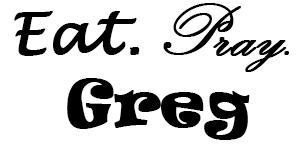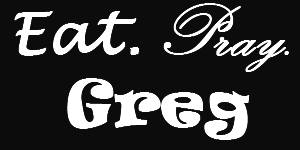“America, help us. We are fighting the Russians to get them out of here. Please help us, we need your help. Please help us.”
These were the words heard by my eleven-year-old father that crackled through his homemade crystal shortwave radio. It was in the middle of a cold November night in 1956 as he was perched on his elbows under blankets in his family home in Norwood, Pennsylvania. The pleas for freedom echoed through his single earpiece from a 300′ antenna he affixed to a nearby tree. There was no dial. By sheer happenstance, he put the antenna piece in exactly the right place at exactly the right time. He might have been one of the first people on the continent to hear the cries of the people and the absolutely brutal oppression at the hands of the Soviet Union. The next day, he learned from the newspaper what was going on half a world away. Later, as films were smuggled out of occupied Hungary and shared with Western audiences, it put pictures to words: Soldiers clearing buildings taking prisoners, tanks in the streets, and bullet-riddled bodies with holes matching the holes in the national flag where the symbols of communist Hungary were cut out. All this due to people simply yearning to breathe free. And dying trying.
And it is here where my connection with the beautiful city began. Or so I thought. Unlike other families, I do not know exactly where my lineage comes from on my father’s side. His family, a few generations removed, were immigrants from the Old World and decided that that is where it would stay. My paternal grandparents grew up in New York City and never really shared that much about our family history with my father or other four siblings. Although they spoke a few languages prevalent in the city, they were Americans and paid a dear price to have that privilege. Yet, in a rare moment of candor, my aged grandmother shared a fragment of her family’s past with my cousin. She was much closer, especially physically, as they lived in Arizona while I lived in Pennsylvania.
And recently, this information was shared with me. This is what my grandmother recounted: a set of her grandparents, I do not know which side, belonged to a family of aristocrats in the Carpathian countryside, probably in Transylvania. Unfortunately, my great-great-grandmother committed the ultimate sin at the time, falling in love with a soldier from the area’s new conquerors, the Astro-Hungarian Empire. Due to this transgression, the family needed to emigrate to Prussia, which would become Germany, then a generation later, to the United States.
Yet another family connection to this beautiful city is my maternal grandmother. She often traveled the world with friends, having gone to the furthest reaches of the globe as she would get summers off from being a high school history teacher. Her travel to this jewel on the Danube was marked with comments on the beautiful countryside, the friendly people, and the delicious food despite being a very picky eater. If you knew my grandmother, this would be the same as other women coming home draped in the Hungarian flag, hugging a steaming hot bowl of Goulash, while singing the Himnusz (their national anthem.)
Other than Keyser Söze and the Rubik’s Cube, I had very little exposure to Hungary growing up. Other than the occasional innocuous schoolyard joke, of course. Nevertheless, I found Budapest an intoxicating paradox with a fine line that dividing it, much like how the Danube divides Buda from Pest.
Like in Paris or Rome, you can feel the history in every corner of the city. Even though a lot of it is dark, they do not mind remembering what they suffered. From the bronzed shoes along the river (a memorial to those the Nazis bound, shot, and drowned) to the still bullet-riddled buildings by the Parliament remembering those that perished in the 1956 Uprising, to the very well kept Nazi and Soviet Secret Police Headquarters at 60 Andrassy Street, where countless political prisoners over the years were dragged in but never came out.
In spite of this, or perhaps because of it, Budapest offers so much more. From the simple pleasure of taking a warm bath in a beautiful Romanesque bathhouse becoming mesmerized by the gold-leafed frescoes on the ceiling as the reflected light from the water dances upon them, to eating a schnitzel the size of a skateboard with matching beer or drinking a 24 karat gold-dusted coffee, to simply dancing in a public park or an impromptu classical music street concert, Hungarians celebrate life as much as they remember death.
Instead of condemning their dark past, forgetting with memorials as too many other places do, they do what they can with what they have to make new, better memories. The perfect example of this is the Ruin Bars; repurposed Soviet structures (factories, apartment buildings, etc.) converted into social hotspots with cheap drinks and enough clandestine alcoves to steal kisses; keeping the darkness of their history but introducing the light of the present and future.
This is the legacy of this beautiful city. I cannot wait to return.


No comment yet, add your voice below!